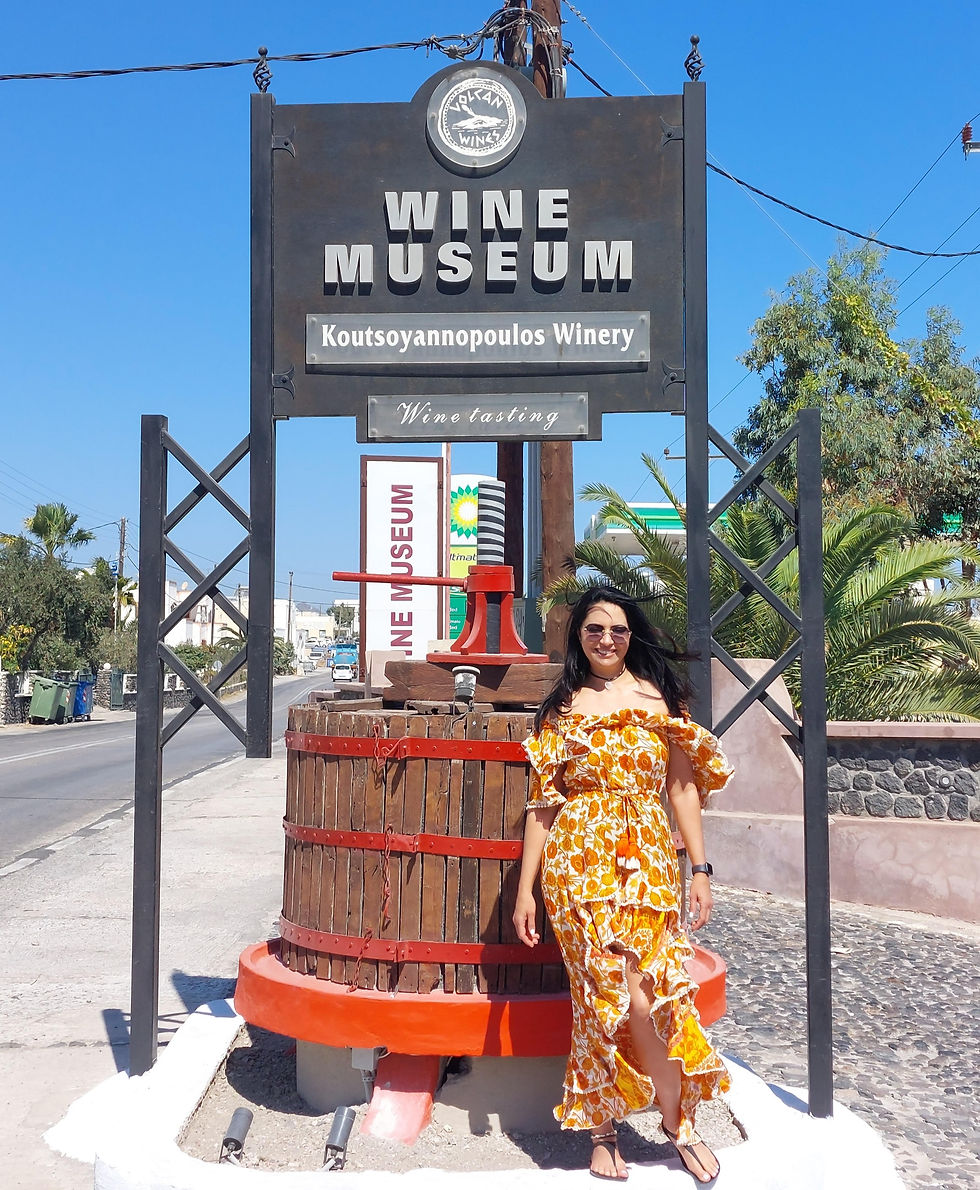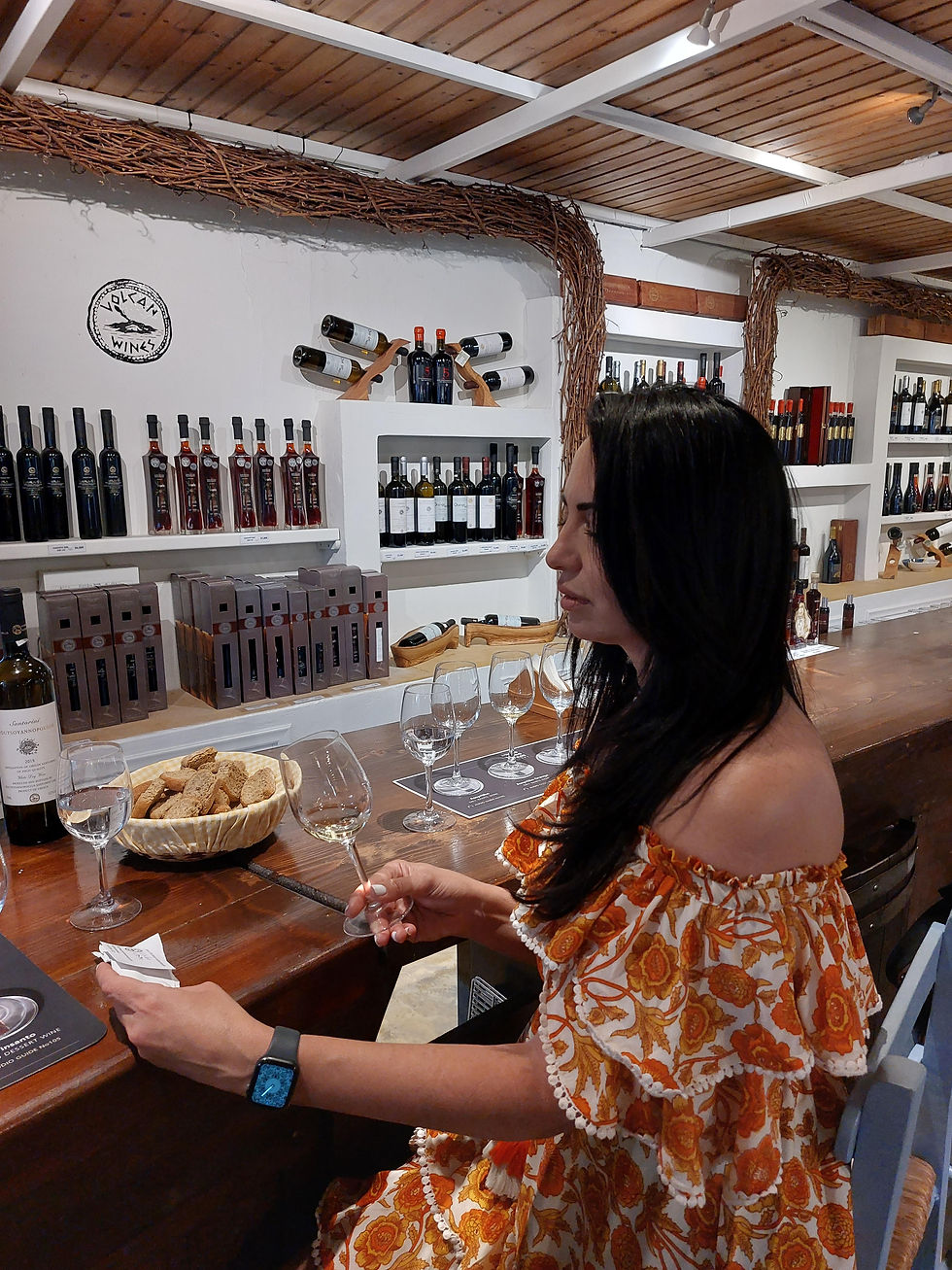Hello dear friends! Recently I visited Greece, a country that I always dreamed of not only for its history, beauty and mythology but also for its remarkable wines. With that said, I most admit that it was Santorini that magical place that really blew me away. And of course, it all started with a great bottle of wine...
You probably have to speak fluent Greek to pronounce it: Assyrtiko. It is the best-known Greek grape internationally. Santorini’s grey sand-like volcanic soil is so poor that almost nothing will grow – except for this supremely hardy grape, which produces exquisitely fresh, lime-infused whites, with laser-like mineral intensity. This varietal is a veteran without equal when it comes to survival and it is definitely the reason why so many wine lovers from around the world visit Santorini's vineyards to taste the wines and experience them in their unique land, accompanied by selected flavors of local cuisine (which I found delectable). An experience that has placed this island, according to “Wine Enthusiast”, among the best wine destinations in the world.

Santorini's vines are considered some of the oldest on the planet. In addition, they have their own roots, which means that they have not been grafted onto American rhizomes, a preventive method against Phylloxera used in most of Europe to fight 1900's big blight. The land they grew up on was once the epicenter of one of the most violent volcanic eruptions ever to occur on earth. The conditions that followed created this marginal combination of soil, composition, climatic conditions and topography on which the vines of Santorini managed to survive and thrive with a distinctive character.
This 'terroir' can be considered very unfriendly for any other kind of plant. The soil is basically volcanic rock which is porous, extremely poor in organic matter and full of minerals. Strong and constant winds sweep the island from all directions, almost throughout the year. Rain is very rare and the soil is too porous to hold much of the scarce water. And on top, every summer the intense sunlight increases the temperatures and punishes the vines.

Happily surprised by the richness of this Assyrtiko.
Survival in such conditions may be a mystery to most, but it is common ground among winegrowers that the more a vine is stressed by its environment, the better the juice it produces. Similarly, Santorini's vineyards produce grapes and wines of distinguished flavor and aroma, and the locals go out of their way to care for them and assist them in their annual struggle to produce offspring.
'Kouloura' vines, the clever solution.
It is an ancient pruning system, also called “ambelia”. In order to protect the bunches of grapes from the wind and scorching sun, growers mold the trunk of the plant into a spiral that forms a basket. The grapes hang inside, protected by the trunk and leaves. The considerable age of these plants provides them with a very deep root system, maximizing the intake of water from the subsoil. Even the moisture from the sea, which is deposited on the surface of the plants, is not wasted. Persistence pays off... All the wines I tasted reflected the magical transformation of the landscape into flavors, colors and smells. You can really feel the volcano, the sun and the sea in every sip!

Vineyards like no other...
Although the Assyrtiko is the most renown there are other 50 indigenous grapes in Santorini, being the white Assyrtiko the dominant one, representing around 80% of the plantations. Assyrtiko is Santorini's greatest treasure, producing crisp, well-structured wines with a marked mineral character. In fact, this noble grape is so versatile that it can produce a wide range of styles. Much of it is fermented in stainless steel tanks, producing fresh wines for immediate consumption.
Assyrtiko’s qualities have not gone unnoticed even beyond its home frontiers. It has been planted in Australia and is being evaluated elsewhere, such as in Italy’s Alto Adige – viticulturists sense that there is still much more to coax from this adaptable, charismatic grape.
And that's a wrap for today! See you all here next Wednesday. Until then...
Cheers!
Super interesting; must try these wines!
Excelentes en verdad, nada como un buen vino para amenizar una cena entre amigos, un romance o un cumpleaños.
Very interesting! Thanks for sharing your experiences in Greece.
Those are a terrific wines, I will take time to try them.